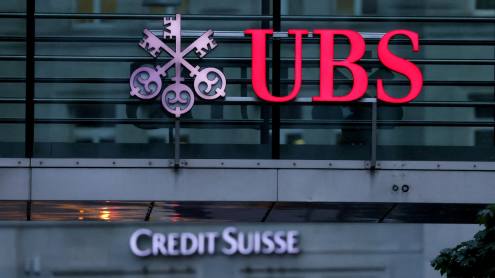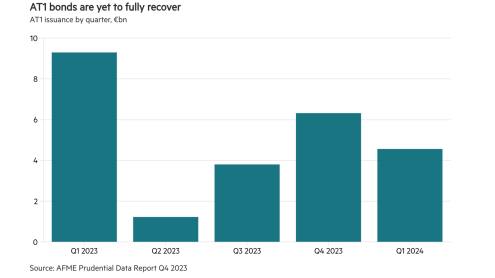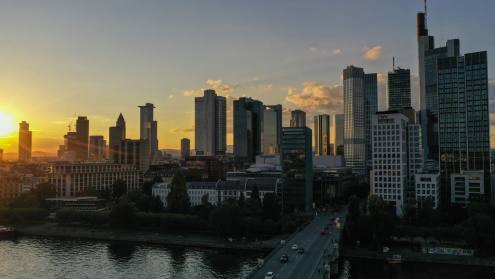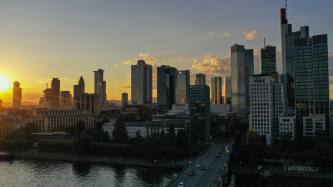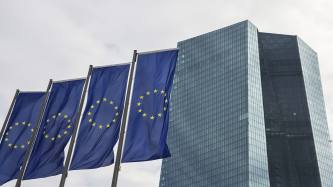Few, if any, in the capital markets had heard of the company before its recent roadshow, but they will surely hear from it again. Turkey’s Calik Holding, which made its international debut in February with a five-year $200m bond, is embarked on a positively hyperactive programme of acquisition and expansion, which will need funding one way or another.
What business is Calik in? At first glance, it is hard to tell. What started as a textile business has been growing rapidly into construction, energy and telecoms. This is your old-fashioned diversified holding company, with a portfolio as varied as you will find these days only in a developing economy.
That said, it does what it does with a certain style, appreciates the power of strategic alliance and likes to partner with the best there is. But those who attended the roadshow had to pay attention, because Calik’s is not a simple story. Its roots go back to the 1930s, when family of the present owner, Ahmet Calik, first got into textiles.
Cloth merchant
Today the group is Turkey’s largest exporter of denim and one of the world’s top-10 denim suppliers. It has vertically integrated into the Russian retail clothing market, selling its own Cherry Tree products through Cherry Tree stores, in partnership with Lee and Wrangler. At $120 a pair, its Russian jeans are not cheap.
In 1996 it diversified into construction, starting in countries from the Commonwealth of Independent States (CIS), where it builds fast-track power plants. Its activities have grown to embrace turnkey industrial projects, infrastructure and environmental projects, as well as hospitals, hotels and prestige buildings in Turkey, neighbouring oil-rich states, the Middle East and north Africa.
By 1999, Calik had moved into banking, getting a licence to operate an investment bank in Turkey – Calik Bank, which provides corporate services, with commodity, leasing and trade finance. Last year it acquired the second largest bank in Albania, BKT (The Banker’s Best Bank in Albania 2006), and here again it has solid partners. Calik owns 60%, with the International Finance Corporation and the European Bank for Reconstruction and Development owning 20% each. There are as many Albanians outside the country as within it (four million of each) and the plan is to expand into countries where they can be found, such as FYR Macedonia, Greece, Montenegro and Bosnia.
The company is in the closing stages of acquiring the Albanian fixed-line telecoms incumbent Albanian Telecom for €120m. That will bring it 76% of the fixed-line business and 100% of Albania’s third GSM mobile licence. “There is good synergy here with the bank,” says Semih Ergür, Calik Energy director of project finance and a spokesman for the bond issue. “As we renew the telecoms infrastructure in Albania, that will help banking.”
If that sounds ambitious for a textile company, Calik’s foray into the energy sector is perhaps the most audacious of all. This began in 2004 when it bought Bursagaz, the municipal gas utility in the highly industrialised city of Bursa, from the Turkish government for $120m. It has since sold 40% of the business to Germany’s EWE for $140m. It is considering using the city pipelines as the backbone for a telecoms network, an area where EWE is well qualified to help. Of the $140m received, $45m has been used to pay for the purchase of Kayserigas, another city utility.
“We believe in vertical integration,” Mr Ergür says. “If we are in distribution, we must also be in generation, transmission and trading.” So the company has now begun to create its own generation facilities and is exploring a partnership with Spain’s Iberdrola. It already has plans for one thermal and three hydroelectric plants.
Pipe dreams
The jewel in the energy crown is, or will be, the Trans-Anatolian Pipeline, for which it has the licence to build and operate. This will bypass the congested Bosphorus, pumping oil from the Black Sea to the Mediterranean. The principal partner is Italy’s ENI, which has a 25% stake, as does Calik. Potential partners, who must provide throughput and financing, include Indian Oil. Construction on the $2bn project starts soon and should take three years.
Investors who managed to take all that in were clearly enthused. Price guidance for a $150m transaction began in the 9% area, but a strong response saw that quickly tightened to 8.75%-8.875%. Though the B+ rated issue was eventually priced even tighter, at 8.625%, 80% of those visited maintained their orders. The size was increased to $200m, and the feeling was that, had the effective issuer not been a holding company but an operating company, the price would have been tighter still.
The company is not committing itself to a return to the capital market per se. “In the coming years we will definitely be tapping the debt markets,” is as much as Mr Ergür promises. But with a project appetite the size of this one, one would not be surprised to see them back in the securities market before too long.



